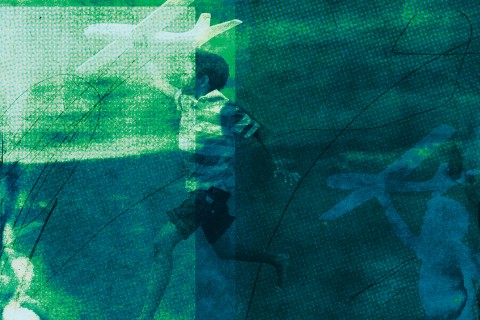Documenting the false apocalypse
In the weeks leading up to May 21, 2011, young filmmaker Zeke Piestrup asked radio-show host and apocalypse predictor Harold Camping if he could accompany him in the final days of the world. Piestrup was not a believer, and he planned to make a film about Camping’s apocalyptic prediction. Still, Camping welcomed him as a companion. The film, Apocalypse Later, will be released this weekend at The Chinese Theaters in Hollywood. Here’s the trailer:
(Full disclosure: I met Piestrup at the Society for Biblical Literature in 2011, when he attended a panel I was on called “Apocalypse Averted.” I appear very briefly at the end of the film as a part of that panel.)
The film gets off to a rocky start, as Piestrup seems to struggle to find his perspective. Camping’s outlandish certainty about the day and the hour of “The End” is played off against scholarly perspectives, but Piestrup has trouble placing these interlocutors in his narrative. Bart Ehrman is introduced without explanation as a “cultural lightening rod.” John Collins is introduced as “the dude.” Loren Stuckenbruck is introduced in an ironic tone as “a superstar scholar at the height of his career.”
Piestrup seems unclear about why he has invited these scholars to give commentary. He seems to both doubt their authority and need it.
The film improves as it begins in earnest to follow the 89-year-old Camping through what he believes to be the planet’s final days. Piestrup accompanies Camping on the set of his radio show, where callers seek advice about their marriages and his understanding of the Bible. The camera follows Camping while he drives to church to preach his last sermon and eat at his last potluck. And it follows him after May 21 and October 21, when a second Judgment Day fails to appear. Piestrup interviews Camping, who has been significantly weakened by a stroke, in his home in May 2012.
The tone of this film could have been catty and even cruel. It could have used access to Camping as a means to set him for public mockery. Or it could have been tongue-in-cheek, pitching Piestrup as a mock believer who buys ironically into Camping’s worldview.
Instead, the portrait of Camping comes across as strangely loving, even without accepting his premises. In one of my favorite scenes, Camping and his wife are eating lunch in a church basement, one that looks exactly like the church basement I grew up in. Piestrup’s camera surveys the food—the broccoli salad, fruit trays and white dinner rolls—while Ehrman’s voice expounds on the role of women in Jesus’ ministry. Then Piestrup interviews Camping’s followers about their own preparations for the end of the world—while the camera stays focused on Camping, seated next to his wife and eating a piece of broccoli. Camping is quiet, lost in thought, almost sad.
Repeatedly, Piestrup finds an unexpected loneliness and pathos in Camping, this life-long preacher, radio personality and devotee of “God’s word.” He appears tired and relentlessly kind. He expresses relief that “soon this will all be over.”
When the end fails to come, Camping’s response is as startling as his initial certainty: he reverses his positions entirely. He had previously interpreted Matthew 19, “No one can know the day or the hour,” as “one of the signs of the end.” But he now says it “couldn’t be clearer.” Where he once condemned all churches as part of Satan’s work, he now says he cannot presume to judge any church. He has decided that his own personal humiliation is a part of God’s purpose, as it will teach others who are tempted to make the same mistake.
Apocalypse Later makes for good viewing because Piestrup does not try to answer as many questions as he raises. He leaves a great deal understated, and he treats his subject with tremendous compassion—even while he does not flinch at some of the more painful questions raised by Camping’s prediction (e.g., believers who gave all their financial resources to the cause).
At the end of his film, Piestrup leaves us with no one to hate, just another episode in the strange saga that is apocalyptic America.






